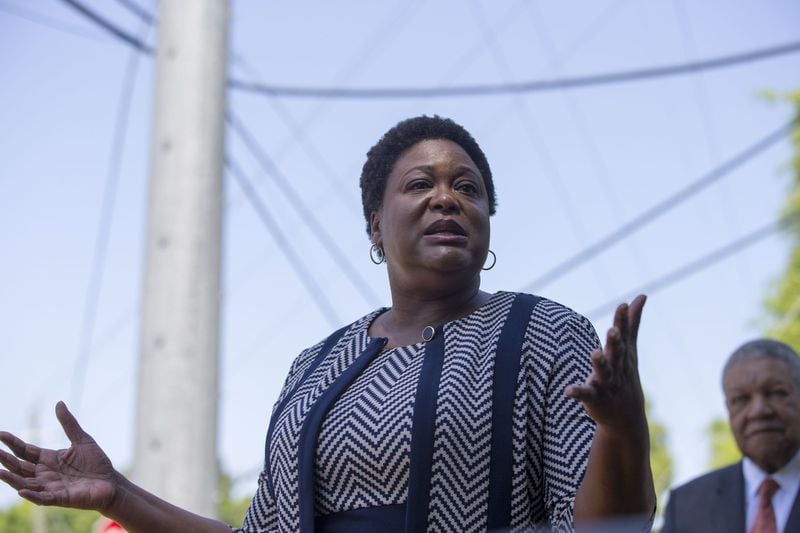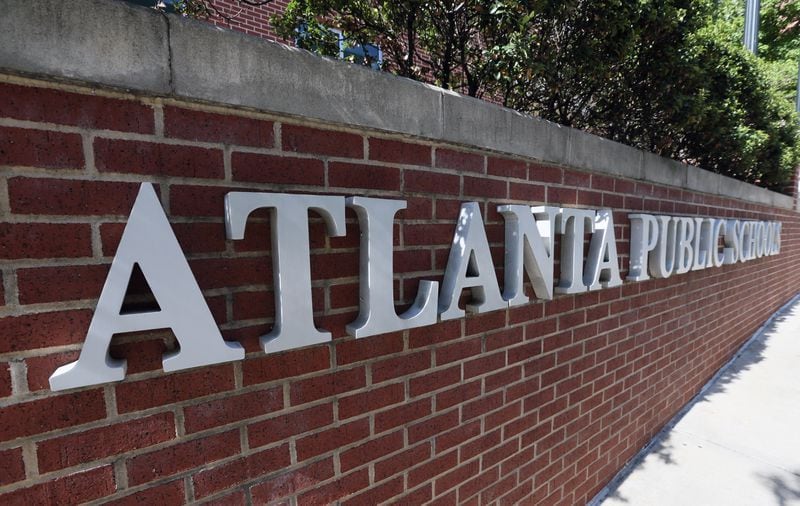Some sticker-shocked homeowners are calling for tax relief after seeing their estimated Atlanta Public Schools taxes on the heels of Fulton County property value hikes.
Last year, Fulton County froze residential property values at 2016 levels after complaints about big bumps. This year, property values assessed have gone up significantly to reflect what officials have said are accurate levels after several post-recession years of failing to keep up with rising values.
Preliminary numbers from the Fulton County Board of Assessors showed about a third of Atlanta homeowners could see a 50 percent spike in property values this year. The median property value increase in Atlanta was reported to be 33 percent.
That means many will pay more in taxes, including school taxes, which make up a large chunk of residents’ tax bills.
“I didn’t envision my retirement spending … tons of money on my property taxes,” said Reynoldstown resident Janine Brown, whose assessed property value nearly doubled this year and whose APS tax bill went from $869 last year to an estimated $2,385 this year. “We really are afraid that our neighbors are going to be forced out.”
Some residents don’t think APS should reap what they consider to be a financial boon at the expense of homeowners struggling to pay higher tax bills. They want a legislative tax fix and for the district to drop its millage rate.
The district isn’t likely to lower it enough to make a big dent in many tax bills, though.
APS officials said they won’t know exactly how much money the district will receive until they review a final tax digest, the total of assessed values for property on which taxes are paid, from Fulton County. The digest has been delayed, but the district expected to receive it today. After the district crunches those numbers, the school board will set a millage rate.
But in the meantime, the school district needed a plan for the fiscal year that begins July 1. So last week the board unanimously approved an $818 million general fund budget. The budget anticipates receiving $597 million in local revenue, about 90 percent of which comes from Fulton County taxes. Projected local revenue is up from last year's budget by nearly $52 million, or 9.5 percent.
The approved budget uses the new local revenue to pay for mandatory cost increases — such as retirement payments — plus $12 million in salary increases the district couldn't afford last year when property values were frozen, said chief financial officer Lisa Bracken. Instead of dipping into the fund balance as has been recent practice, the budget also calls for adding $2 million to the fund balance.
“There’s nothing fancy in this budget. It’s just mandatory costs and doing what we have to do,” Bracken said.
If the tax digest shows more local revenue than the budget anticipates, Bracken envisions three options: The district could put more money into the fund balance, push money back to schools to make up for funds the district has held back, or lower the millage rate. It could also do a combination of those.
That budget — as well as tax estimates like the one Brown received— is based on the assumption that the district keeps its millage rate at 21.74 mills.
Once the district has the final tax digest, it must calculate a rollback rate – or how much it would have to lower the millage rate so that the district does not receive additional money from inflation and reassessment increases. If APS wants to maintain the current rate, it’s considered a tax increase and the school board must hold public hearings before adopting it. That process would take about a month.
Bracken doesn’t expect to recommend rolling back the millage all the way.
Small decreases in the millage rate won’t save all that much money for residents whose values have skyrocketed.
The owner of a home valued at $250,000 (with an assessed value of $100,000) would pay about $1,522 in taxes this year if the millage rate remains at 21.74. If the district drops the rate by one mil, it would save that homeowner only $70, according to district figures.
“That’s like someone starving — they are about to die — and you give them a morsel of bread. You aren’t going to make any difference,” said R.J. Morris, a member of the Fulton County Board of Assessors.
Voters in November will consider a proposal to increase that exemption from $30,000 to $50,000, though all homeowners would begin to pay taxes on the first $10,000 in value. For example, a homeowner with an assessed value of up to $60,000 would pay taxes on $10,000.
The change would save the owner of a $250,000 home about $435 at the current APS millage rate.
If approved, the exemption would go into effect for next year’s tax bills and expire in three years. APS estimates the exemption would cost the district about $25 million in revenue a year, one reason officials want to start building up the fund balance.
But Morris believes that homestead-exemption measure doesn’t do enough to help homeowners.
He points to other tax-relief proposals pending voter approval that would limit how much assessed values can go up for the purposes of taxes paid to Fulton County Schools, the city of Atlanta and several north Fulton cities.
There’s no similar measure aimed at the APS part of the tax bill.
Credit: Bob Andres
Credit: Bob Andres
A leader of the Atlanta legislative delegation, Rep. Pat Gardner, D-Atlanta, said lawmakers tried to balance the school district’s financial needs with “a way to buffer the shock” of tax bills for homeowners.
She said they considered numerous tax-relief options during the last legislative session and will continue to do so. Gardner said concern about "uneven" property values was one reason legislators didn't support capping assessed values for the Atlanta school portion of the tax bill.
“It did not seem wise to just immediately freeze these values that were all over the map. [It] didn’t seem fair,” she said.
Whether the additional tax revenue amounts to a windfall or makes up for years when revenue lagged depends on your perspective.
Morris views APS as already “rich” compared to other districts. The state reports that APS spent an average of $15,625 per student for the 2016-17 school year, compared to the statewide average of $9,417.
“What can you do with all this money?” he asked.
APS counters that as an urban district it faces unique challenges that affect its per-pupil spending — from additional pension costs to operating smaller schools in neighborhoods hemmed in by traffic. It serves many students who are poor and receive support, such as special education, that costs more to provide. The district also highlighted its commitment to the arts, athletics, and other initiatives plus money spent to turn around its lowest performing schools.
“We’re seeing these huge increases because of years of under-valuing and years of under valuing means that this district has had years of… under-collecting and under-receiving those taxes too,” Bracken said. “It’s not just a boon year. It’s really us trying to catch up on a long time of not being accurately assessed.”
2019 adopted or tentative general fund budgets
Atlanta Public Schools: $818.4 million
Clayton County Public Schools: $455.1 million
Cobb County School District: $1.077 billion
DeKalb County School District: $1.08 billion
Fulton County Schools: $1.051 billion
Gwinnett County Public Schools: $1.706 billion








